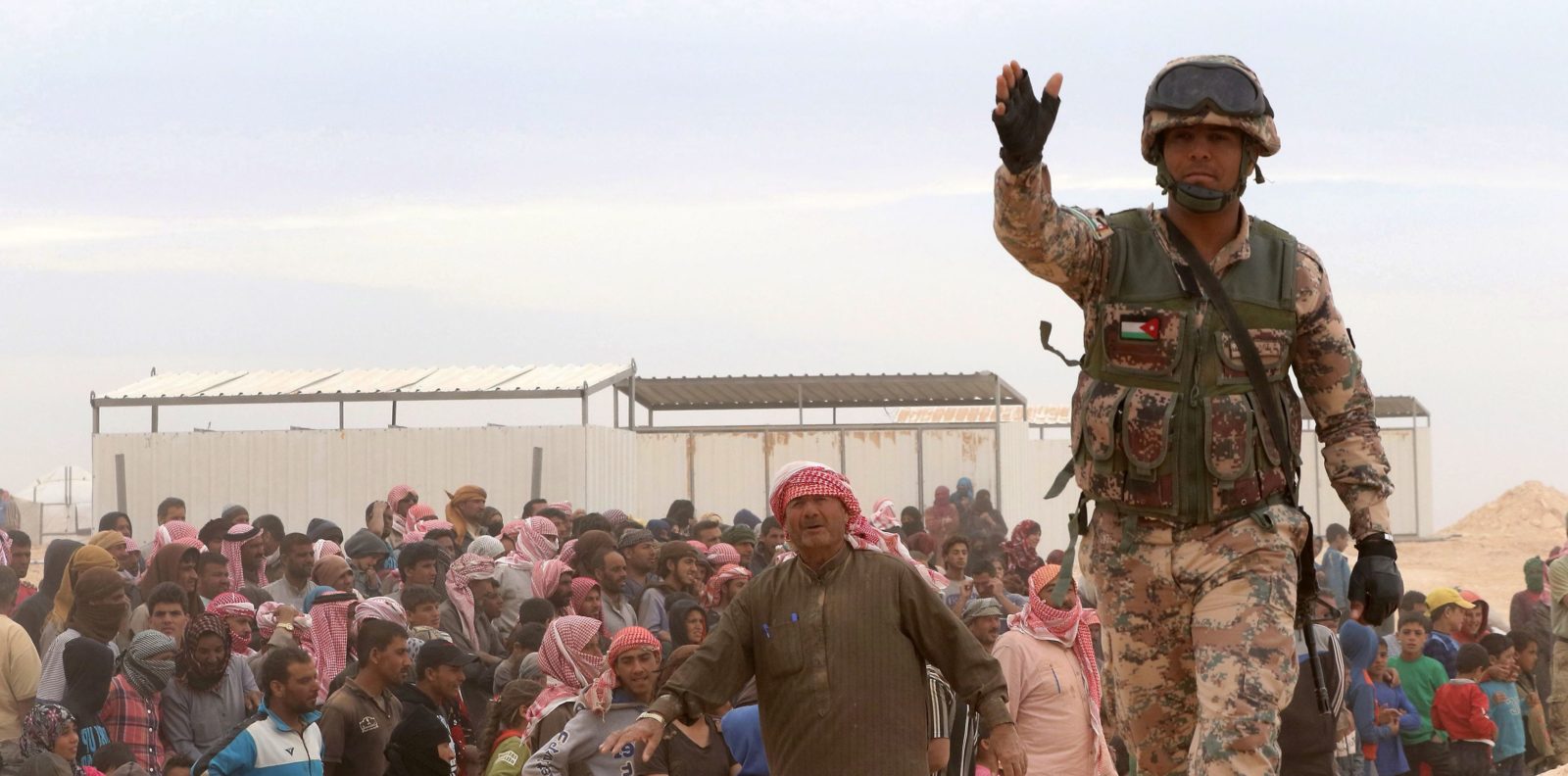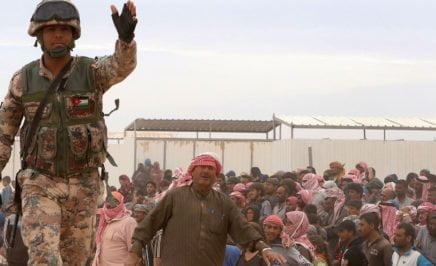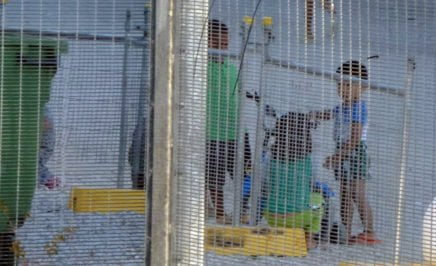Reports about the resumption of humanitarian aid to 75,000 refugees stranded in a remote, arid area along the Jordanian-Syrian border called “the berm” are a long-awaited glimmer of hope that should be followed by a sustainable, long-term solution.
The news comes as the UN and the Jordanian authorities continue negotiations to open a humanitarian lifeline to the Syrians who have been stranded there since the Jordanian authorities sealed the border following an armed attack in June. Since then the refugees have endured hellish conditions with no aid except one delivery, made by crane in August.
“News that humanitarian assistance will be resumed to tens of thousands of refugees stranded at the berm comes as a welcome relief. However, we are worried by reports that aid will be lobbed across the border by crane or that refugees will be coerced, either directly or indirectly, to move to areas where they may be at risk of attack in order to receive it.
“Unfettered humanitarian access and a managed multi-sector humanitarian response in line with international standards is what is urgently required,” said Audrey Gaughran, Director of Global Issues and Research at Amnesty International.
Tens of thousands of refugees have fled bloodshed in Syria only to suffer for months on end in utterly inhumane conditions at the berm. Aid organizations must have unfettered access to provide food aid, lifesaving medical treatment and other support. Anything less is just a band aid that will do little in the long run.
“Tens of thousands of refugees have fled bloodshed in Syria only to suffer for months on end in utterly inhumane conditions at the berm. Aid organizations must have unfettered access to provide food aid, lifesaving medical treatment and other support. Anything less is just a band aid that will do little in the long run.
“A more sustainable long-term fix to the crisis at the berm is needed. A real and meaningful solution would be for Jordan, with the support of the international community, to provide the stranded refugees with safety and sanctuary from the brutal conflict in Syria. This includes allowing refugees into the country, while carrying out the necessary security checks in line with international law and standards.
A more sustainable long-term fix to the crisis at the berm is needed.
“The international community must also share responsibility with Jordan by providing significantly more resettlement places to alleviate the pressure on Jordan as one of the largest refugee-hosting countries in the world.”





